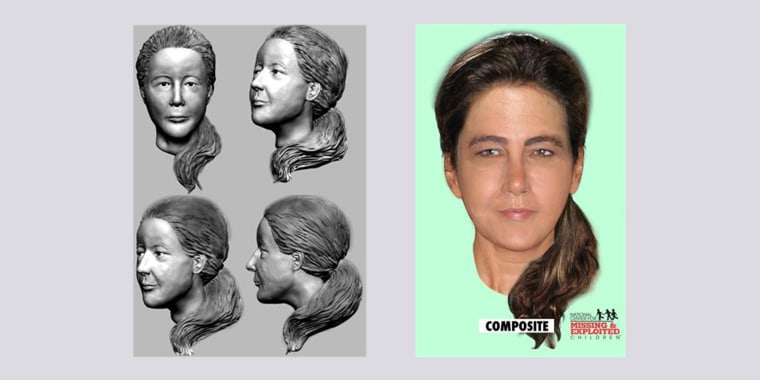Authorities in Massachusetts announced Monday they have identified the oldest unidentified homicide victim in the state, dubbed the “Lady of the Dunes,” whose mutilated body was discovered on a Cape Cod beach nearly five decades ago.
Ruth Marie Terry, 37, of Tennessee, was identified as the woman found on a beach in Provincetown on July 26, 1974, said the FBI’s special agent in charge in Boston, Joseph Bonavolonta.
Terry was identified through investigative genealogy, Bonavolonta said at a news conference, calling the development a “major break” that will “hopefully bring all of us closer to identifying the killer.”

“While we have identified Ruth as the victim of this horrific murder, it does not ease the pain for her family — nothing can,” Bonavolonta said. “But hopefully, they answer some questions while we continue to look for her killer.”
The FBI released a flyer with pictures of Terry and asked anyone with information about her killing to contact authorities.
The flyer said Terry died from a blow to the head, which likely happened weeks before her body was found. "The left side of her skull had been crushed. No weapon was found at the crime scene," the flyer said.
Terry’s hands were missing, “presumably removed by her killer so she can not be identified through fingerprints, and her head was nearly severed from her body,” Bonavolonta added.
Her nude body was discovered on a beach towel with her head resting on folded jeans. She lay on half the towel, as if she’d been sharing it with a companion, according to a Provincetown website dedicated to her case. Her body was exhumed in 2000, the website said.
Over the decades, investigators used techniques to try to identify her, such as canvassing neighborhoods, reviewing thousands of missing persons cases and generating age-regression drawings and clay-model reconstructions, Bonavolonta said.
Ultimately, investigative genealogy, which Bonavolonta described as combining DNA analysis with traditional genealogy research of historical records, led to her identity.
Terry, who was born in Tennessee, also had ties to Massachusetts, Michigan and California, Bonavolonta said. She was described as a beloved sister, wife and mother.
Bonavolonta said investigators don’t know why Terry was in Massachusetts.
Massachusetts State Police Col. Christopher Mason said unsolved cases like Terry’s can haunt investigators.
“For many police investigators at the end of their careers, there is often an unresolved case that haunts them, that intrudes upon the days, years and decades of the rest of their lives,” he said. “This case has been that for generations of Provincetown police officers and Massachusetts state troopers.”
The notorious case has generated national interest over the years and prompted theories about the victim and whoever was responsible for her death. One of the theories is that the victim worked as an extra in the movie "Jaws," which was filmed on Martha's Vineyard in the summer of 1974.
A reporter brought up the speculation to Bonavolonta in a question Monday. Bonavolonta did not directly answer the question.
The victim also had extensive dental work, and some of her teeth were removed, a technique used by the ill-famed Boston gangster James "Whitey" Bulger, which has led to speculation about a possible connection.
The next phase of the investigation, Bonavolonta said, is to learn more about Terry's life to inch closer to whoever is responsible for her death. He said the case should be a warning for criminals.
“To every murderer, rapist and violent offender out there, the FBI and our law enforcement partners will not rest,” Bonavolonta said. “It may take years, or even decades in some cases, but we are determined, and we will be dogged in our search for justice for victims and their families.”